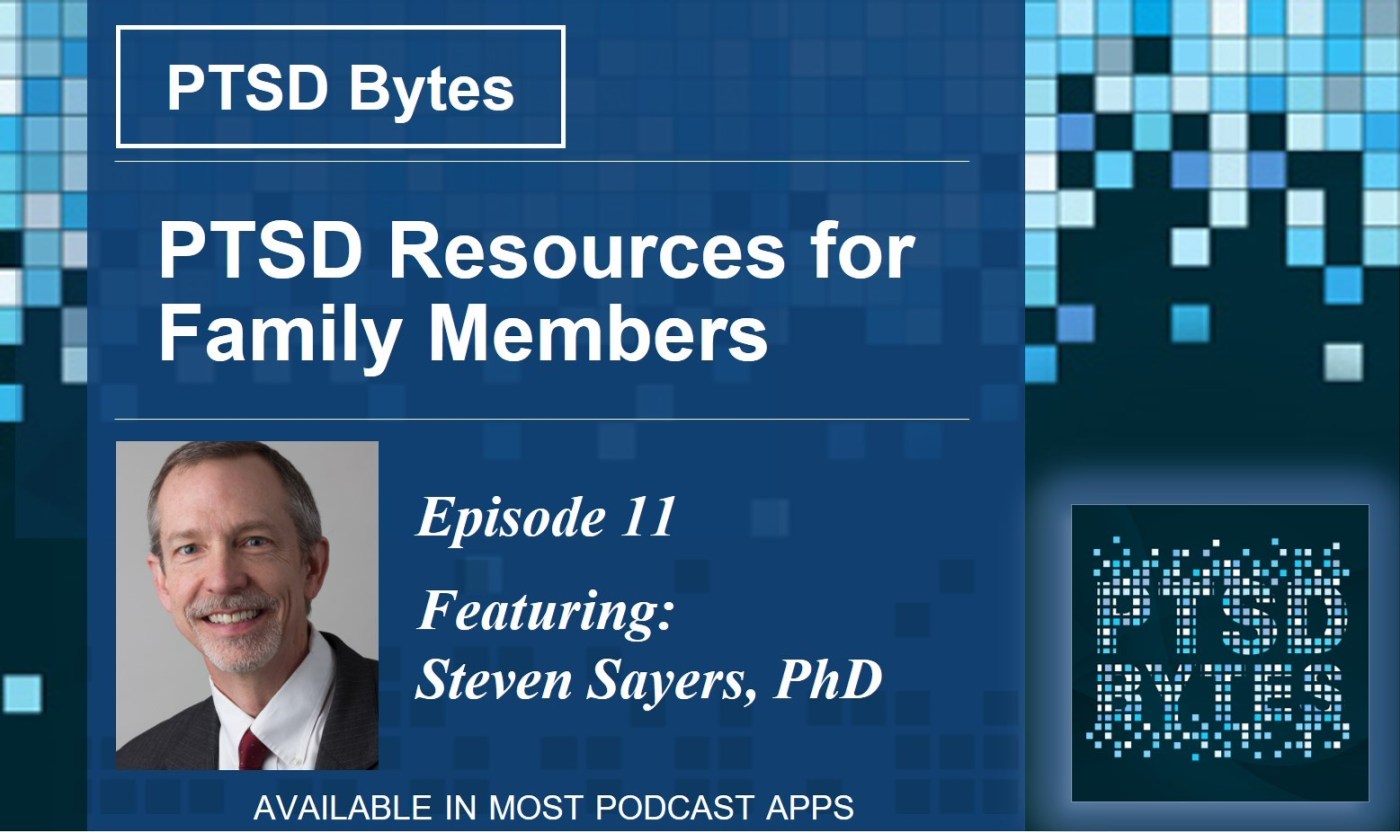Listen to “#11: PTSD Resources for Family Members” on Spreaker.
In this episode of PTSD Bytes, host Pearl McGee-Vincent discusses PTSD resources for family and loved ones with Dr. Steven Sayers, director of Coaching into Care and the Advanced Fellowship in Mental Illness at the Philadelphia VA.
Effects of PTSD on relationships
Veterans with PTSD may not want to talk about their experiences because they are trying to protect their loved ones. This can lead to a lack of closeness with family members, which means that these family members are less able to support the Veteran.
Talking about PTSD
Dr. Sayers encourages family members to talk to the Veteran about how he or she is feeling. Ask what they find stressful, and how they want to manage those situations. However, directly talking about traumatic experiences is more difficult and may best be discussed with a counselor or therapist first.
Coaching into Care
Coaching into Care is a VA service that provides phone support to friends and family of Veterans. The service helps loved ones find ways to have a productive and supportive conversations with a Veteran about seeking help. Call toll-free at 1-888-823-7458 or visit the Coaching into Care website.
Helping a Veteran who has PTSD
Some common signs that a person needs help are being uncomfortable and avoiding situations, such as large crowds, or increased alcohol or drug use. Dr. Sayers says that you, as a family member, can have an effective conversation with the Veteran in your life by: (1) expressing your willingness to help, (2) stating your concern and (3) asking what the Veteran believes could be a solution.
How to find professional help
To help a Veteran with PTSD get professional care, you can talk together with his or her VA primary care provider about a referral. Coaching into Care can also help find referrals in your community for the Veteran as well as resources and support for yourself.
Other resources
Additional resources family members and other loved ones might find useful:
- The “For Families and Friends” section of the National Center for PTSD website has information on the Effects of PTSD, How Can I Get Help and How Do I Get Support.
- Maketheconnection.net is a website that features video interviews with Veterans and family members about their experiences with mental health.
- Community Reinforcement and Family Training (CRAFT) is a course for family members that teaches strategies for supporting Veterans in their decision to seek help. Click “Get Started” to start the CRAFT course.
- The PTSD Family Coach app has information for family members who are concerned about a Veteran with PTSD, including a directory of resources and communication strategies.
Additional Links
If you are a Veteran who is experiencing a crisis or supporting a loved one who is, call 1-800-273-8255 and press 1 for immediate assistance, or chat online at VeteransCrisisLine.net/chat.
Topics in this story
More Stories
It’s essential for Veterans to take action and prepare for tornados and spring storms while staying informed.
Army Veteran Jeffery Williams' journey is a testament to resilience, perseverance and the power of innovation in transforming lives.
VA’s latest data shows a decrease in the suicide rate among women Veterans, but more effective interventions and support systems are needed.





